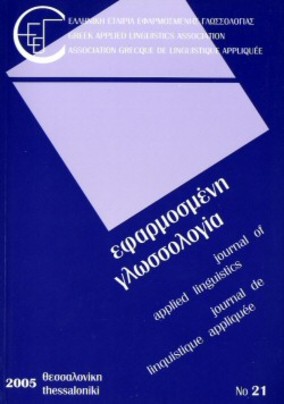Why is pronunciation so challenging to acquire and teach?
Part of : Εφαρμοσμένη γλωσσολογία ; No.26, 2010, pages 81-110
Issue:
Pages:
81-110
Author:
Abstract:
Pronunciation is singled out among other language components, e.g., grammar, vocabulary, in that native like proficiency is an extremely far-reaching goal, which for most L2 learners is apparently impossible to attain. This exceptional status of pronunciation has led to its frequent marginalisation in the classroom. This paper draws from research on LI and L2 phonological acquisition as well as empirical studies on pronunciation teaching in an attempt to provide a synthesis of those features that make pronunciation acquisition and teaching so challenging. It discusses issues relating to perception and production in LI and L2, foreign accent, and the focus and effectiveness of pronunciation teaching. It also argues for the integration of pronunciation instruction with the teaching of other language components and briefly presents a new method for the combined teaching of pronunciation and vocabulary. Finally, it discusses the benefits computer-based technology can offer to pronunciation teaching and learning through the provision of auditory and visual feedback. On the basis of theory and empirical findings, it argues for the significance of extensive input and production for successful language learning.
Subject (LC):
Notes:
Περιέχει πίνακες, εικόνες και βιβλιογραφία




